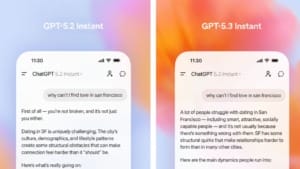OpenAI introduces a new lightweight deep research tool for ChatGPT users
OpenAI adds a faster, lightweight deep research tool to ChatGPT, making it easier for users to access web-based summaries and reports.

OpenAI has launched a new “lightweight” version of its deep research tool for ChatGPT, giving you quicker and more affordable access to in-depth online research. This update, which began rolling out on June 6, is now available to users on ChatGPT Plus, Team, and Pro plans—and it’s also starting to reach free-tier users today.
Table Of Content
This lightweight version is powered by a version of OpenAI’s o4-mini model. While it’s not as advanced as the full deep research tool, OpenAI says it offers good quality while being more efficient and cheaper to operate. That means OpenAI can increase how often you can use the tool without losing the strong results you’ve come to expect.
What the lightweight version offers
You’ll notice that responses from the lightweight version of deep research are generally shorter but still contain helpful detail and accurate information. According to OpenAI, this new option is designed to deliver solid research results faster, making it easier to gather information without overloading the system.
We’ve noticed many of you love using deep research, so we’re expanding usage for Plus, Team, and Pro users by introducing a lightweight version of deep research in order to increase current rate limits.
— OpenAI (@OpenAI) April 24, 2025
We’re also rolling out the lightweight version to Free users.
If you hit your usage limit on the full deep research tool, your queries will automatically switch to the lightweight version. This ensures you can keep working without interruption. You don’t have to do anything manually—ChatGPT handles the switch for you.
The tool continues to scan the internet and pull together trustworthy summaries on various topics. It helps with everything from gathering the latest news to compiling background on a subject, all within the chat interface you’re already using.
Expanding access across user groups
OpenAI says it will expand access to this lightweight version next week. Enterprise and education users can use it with the same limits set for Team users. This is part of OpenAI’s ongoing effort to make advanced AI research tools more accessible to people across different professions and needs.
The move comes as other tech giants, including Google, Microsoft, and Elon Musk’s xAI, roll out similar tools. Each company is trying to build AI models that not only deliver facts but can also reason and think critically through problems. These models are beneficial when you must dive deep into a topic and get more than surface-level answers.
OpenAI’s lightweight deep research stands out for its speed, accuracy, and availability balance. Reducing the cost of each interaction makes it easier for you to ask more questions and get helpful summaries without worrying about hitting a limit too quickly.
Keeping quality while improving speed
In a series of posts on X (formerly Twitter), OpenAI said that the tool still maintains the quality ChatGPT users are used to. The idea is to give you helpful information while reducing the strain on the system. This allows more users to access powerful research tools without upgrading to the highest plans.
As ChatGPT continues to evolve, OpenAI is focused on keeping things efficient, easy to use, and accessible to more people. Whether you’re a student, a professional researcher, or just curious about a topic, this new lightweight research option could make your daily tasks easier and faster.
















